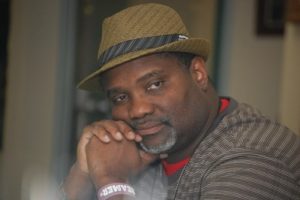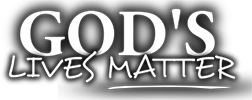
by | Jan 4, 2018 | Commentary, Events
I made a promise to GOD last year. A promise to stand up and speak out when our country pursues policies, behaviors, and choices that aren’t consistent with belief in God, trust in Humanity, and in Justice and Equality for all Americans.
I decided one of the best ways to keep that promise was to introduce a new faith-based friendly organization. The initial concept of GLM was to reject the use of color in describing humanity. We incorporated in Louisville, Kentucky.
I promise to you to be a reminder, to witness and reveal exactly how GLM, with its motto “Making America Greater Than It’s Ever Been” (MAGTIEB), will work to return America to where it was in the beginning (ITB). We shall align America with the original purpose of color.
The truth is skin color division and separation is a cancer in America and must be made unconstitutional. We wish to see new legislation outlawing the use of language and terminology based on skin color!
We the citizens of America must not yield to the daily assaults that divide our democracy. And we must support those who create policies that defend the American people in this battle.
Fighting alongside the common believer for me means fighting for those constitutional rights that are on the line right now. I’m committed as a Professional Believer to keep on resisting.
I hope and pray that you join with me in this movement. God’s Lives Matter, I promise with all of my heart, will work to unify this nation of believers to take our country back for God. Amen!

MeShorn T Daniels, Founder and Chairman, GLM
by | Jan 4, 2018 | Commentary
Labor and Capital,
People and Things;
we each should own labor 1
and capital 2 things.
Things that make profits 3
and dividends 4 bear
for us and our families;
as owners we’d share.
When apps and robotics
start taking our jobs,
with dividends coming,
there’s no need for sobs.
How can we buy assets 5
if money we lack?
With capital credit 6 —
insured loans 7 we’d pay back.
When banks create money
for citizens all,
we’ll buy our new shares
from the firms great and small. 8
With all our investments
those firms could acquire
equipment and robots,
making profits grow higher.
With the companies’ profits,
our loans we’d repay. 9
As capital owners,
we’d greet the new day!
The firms making money
from goods that they sell,
would pay us our profits,
then we all could do well. 10
Labor and Capital,
People and Things.
Would you rather be owned,
or own capital things?
© 2012, rev. 2017-1205 Dawn Brohawn
EXPLANATORY NOTES
1 “Labor” refers to all forms of human input — including manual, intellectual, and entrepreneurial.
2 “Capital” refers to all non-human things used to produce marketable goods and services.
3 What the owners receive after the company’s goods or services are sold and all costs are subtracted from the sales revenues.
4 Profits that are divided among the shareholders, based on the number of shares they own.
5 In other words — capital — productive things owned by a company, which in turn is owned by its shareholders.
6 Credit (in the form of a loan) that is used to buy a productive asset that pays for itself with the full stream of its own future profits.
7 This refers to “capital credit insurance” used to cover the risk that a particular loan won’t be repaid. Such insurance provides an alternative to traditional forms of “collateral” (assets a lender can seize if a loan isn’t paid back). It overcomes a major obstacle to capital ownership facing the vast number of non-owning citizens, who otherwise could not afford to purchase capital.
8 The proposed strategy would enable every citizen, no matter how poor or rich, to acquire an equal allotment of interest-free capital credit (capital loans) to buy full dividend payout, voting shares. Equal access to capital credit is for economic democracy what the ballot is for political democracy.
These “just free market” reforms would create asset-backed money when local banks take approved expanded capital ownership loans to the discount window of their regional Federal Reserve to be “monetized.” The newly created money would be used by citizens to buy new and transferred shares in profitable companies. In turn, the companies would use the new asset-backed money to purchase needed plant, equipment, land, robots, etc. that contribute to the production of marketable goods and services.
9 This refers to “self-liquidating” (self-repaying) capital credit, where a loan is repaid with the full stream of future, pre-tax corporate profits. (Such future profits are also called “future savings.”) No interest would be charged on these expanded ownership loans, because nobody’s “past savings” are lent out. There would only be a one-time service fee “discounted” (subtracted by the banks from the total loan amount) to cover administrative expenses, profit, and loan risk insurance. While the loan is being repaid, that citizen’s share of profits would be used for that purpose. After the loan is repaid, those profits would provide an independent stream of income to the citizen.
10 This is how every person can share in, and become economically empowered through, ownership of future capital growth and transfers. The equal right of each person to acquire the full rights of ownership, enshrined in Article 17 of the United Nation’s Universal Declaration of Human Rights, could finally be realized. The reformed economic system would allow every child, woman and man to become financially independent, and to prosper and develop to his or her fullest human potential in the Age of the Robots, Artificial Intelligence and Self-Driving Vehicles.

by | Jan 4, 2018 | Commentary

Do you agree that America is becoming more and more divided? Do you agree that opportunity, prosperity and power are flowing to fewer and fewer people at the top, while more and more people are falling to the bottom? Do you agree that our old ideas and ways of thinking, and our old solutions, are not offering a better future for every one of us?
If so, maybe it’s time for a “new, more just way” — time for us to discard the bitter dregs of the past, and together make “new wine” in which all can partake.
Rev. Martin Luther King, Jr. dreamed of a future where the descendants of American slaves would sit at the banquet table with the descendants of American slaveholders — and with them the descendants of those who dwelled here before and those who later made America their home. Rev. King reminded us that all of God’s lives matter and have infinite value.
But we keep drinking from old bottles the same dregs of slavery. We’ve traded one monstrous form of slavery for the more subtle, modern forms of wage slavery, welfare slavery, charity slavery, and consumer and government debt slavery. We keep ignoring one simple, universal and eternal truth that could set us all free: “Own or be owned.”
Whether it’s dependency on a job that might disappear, or dependency on a government that might cut social programs, it’s dependency. It robs people of their dignity, freedom and power as citizens.
On the other hand, property (meaning the rights of ownership) has always conferred power on those who own and control productive wealth and have the right to its fruits. Property gives economic power in the same way the ballot gives political power. Without economic power, political power is weak and vulnerable.
A more unifying, democratic and just way forward is not to pull down the rich, or hand economic power over to government or a small elite. The new vision — the new wine of our future — is to enable every child, woman and man to share in, and become economically empowered through, ownership of future capital growth and transfers. Each of us must become the master of job-displacing technologies, and not remain a slave or victim.
And yet, as the Bible tells us, “No one puts new wine into old wineskins: otherwise, the wine will burst the skins, and the wine is lost, and so are the skins: but one puts new wine into fresh wineskins” (Mark 2:22). Our old ways of thinking and acting will never change if they remain bound by old ideas, old beliefs and old systems that have proven themselves divisive, unworkable and unjust.
Today in the 21st Century, we have to think of solutions beyond wages and welfare, to how we can realize the universal and equal right of every person to become an economically self-sufficient owner of capital, without infringing on the ownership rights of others. Enshrined in Article 17 of the United Nation’s “Universal Declaration of Human Rights,” this right extends beyond Americans to every citizen of the world.
But we also need the new “wineskins” to help make the new wine. Specifically, we need to re-examine and reform our laws and institutions — particularly our money and credit, tax and inheritance systems — which dictate who will own the future and where the money will come from to acquire future productive capital.
When robots, artificial intelligence and self-driving vehicles take your job, this can either be a threat to your livelihood and life, or a new source of income for you and your family. A reformed economic system would allow every child, woman and man to become financially independent, to prosper, and to develop to his or her fullest human potential.
These new ideas and new solutions are available, waiting for the new wineskins to bring forth the new vintage. First, however, we must unlearn our old assumptions in order to learn the new possibilities. Then we must all work together, united around a sound plan of action, to transform the habits, structures, systems and institutions that now bring about conflict, corruption, violence and poverty.
Like using new wineskins to make new wine, we need to introduce new ownership- and power-diffusing structures, systems and institutions that support the dignity, empowerment, opportunity, and prosperity of each human person.
Dawn K. Brohawn
Center for Economic and Social Justice
December 6, 2017
For more information on strategies to enable every citizen to become an owner of productive capital, visit the global library of the Center for Economic and Social Justice (www.cesj.org) and the website of the Unite America Party (www.uniteamericaparty.org)




